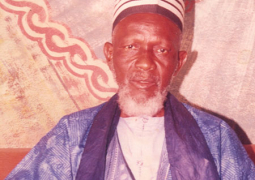(Part 2)
Third, the dilemma of an Ummah living in a global village tightly framed in confused, uncertain and paranoid postmodern epistemology and interacting as a mere object with a might that is often militant and aggressive but worse still a might that enjoys eloquence abilities that always turn the victim to look like the criminal and the criminal to look like the victim Fourth, and the worst factor that makes the theme difficult is the state of Muslim internal crisis of the loss of adab (discipline) amongst themselves a situation that has already produced a chronic state of psychological emotionalism, intellectual literalism and social over reactionism generated through ages of injustices inflicted upon the Muslim populace both externally and internally mostly by the Muslim governments themselves. In our crises, the blame should be first laid on the Muslims themselves. There has always been a form of Islamic Machiavellian politics led by Muslim totalitarian governments who to rest in power would create tribal and religious tensions and indoctrinate their peoples into a high degree of emotionalism. Such high degree of emotionalism has further been exploited by the enemies of Islam through provocative attitudes seen, for example, in Salman Rushdi's Satanic Verses and the caricaturing of our Prophet (pbuh) to purposely consolidate in the public sub-conscience the wrong messages about Islam and its contribution to the world peace and prosperity. In short, in this global village, where a sneeze in one corner is directly felt in the other, engulfed in rejection of spiritualities with a zeal to materialistic attraction, confused by the paradigm of quantum uncertainty, ruled by the law of the might, and threatened with the possibility of a nuclear conflict, what is the role of Islam and Muslims in spreading peace and making the world a better place to live in? This paper tests the hypothesis that Islam is peace and that Islam and its followers have contributed in the past and present in promoting the culture of peace and that they can play a better peace role in the 21stcentury. It attempts to falsify the theory of Islamic intolerance, an image wrongly channeled to the world sub-conscience by a cunning minority through a brutal media in order to perpetuate hatred against Islam. The paper gives some theoretical as well as practical examples of the Islamic peaceful approach and suggests mechanisms for future contribution to the world peace in a globalized world.
Fourth, and the worst factor that makes the theme difficult is the state of Muslim internal crisis of the loss of adab (discipline) amongst themselves a situation that has already produced a chronic state of psychological emotionalism, intellectual literalism and social over reactionism generated through ages of injustices inflicted upon the Muslim populace both externally and internally mostly by the Muslim governments themselves.
In our crises, the blame should be first laid on the Muslims themselves. There has always been a form of Islamic Machiavellian politics led by Muslim totalitarian governments who to rest in power would create tribal and religious tensions and indoctrinate their peoples into a high degree of emotionalism. Such high degree of emotionalism has further been exploited by the enemies of Islam through provocative attitudes seen, for example, in Salman Rushdi's Satanic Verses and the caricaturing of our Prophet (pbuh) to purposely consolidate in the public sub-conscience the wrong messages about Islam and its contribution to the world peace and prosperity.
In short, in this global village, where a sneeze in one corner is directly felt in the other, engulfed in rejection of spiritualities with a zeal to materialistic attraction, confused by the paradigm of quantum uncertainty, ruled by the law of the might, and threatened with the possibility of a nuclear conflict, what is the role of Islam and Muslims in spreading peace and making the world a better place to live in?
This paper tests the hypothesis that Islam is peace and that Islam and its followers have contributed in the past and present in promoting the culture of peace and that they can play a better peace role in the 21stcentury. It attempts to falsify the theory of Islamic intolerance, an image wrongly channeled to the world sub-conscience by a cunning minority through a brutal media in order to perpetuate hatred against Islam. The paper gives some theoretical as well as practical examples of the Islamic peaceful approach and suggests mechanisms for future contribution to the world peace in a globalized world.





